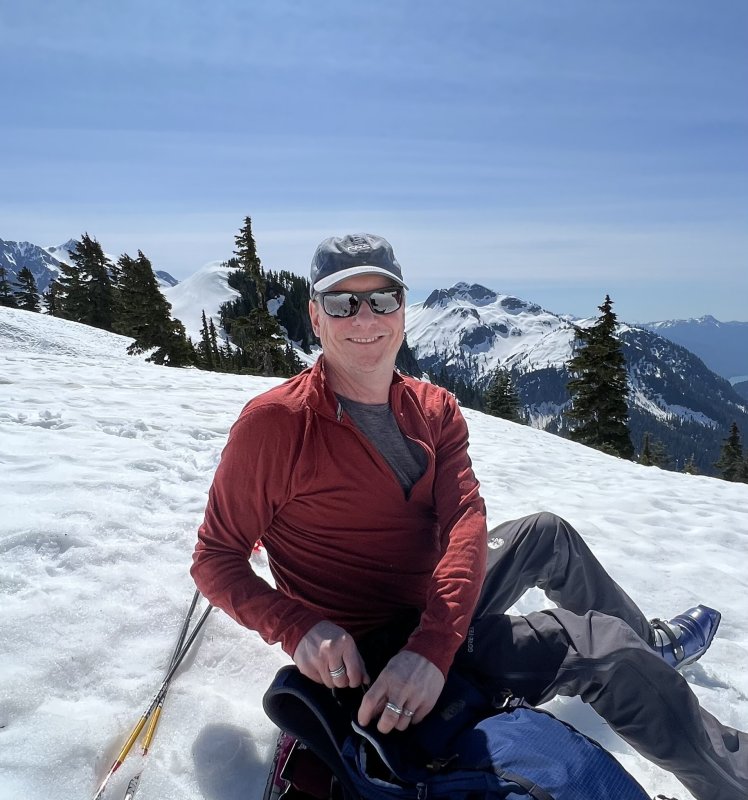Get to know Keith Russell, the new dean of WWU's College of Humanities and Social Sciences
Keith Russell, dean of Western's College of Humanities and Social Sciences and the former chair of the university's Health and Human Development department, has spent the last 15 years researching how to best combine adventure therapy with traditional clinical therapeutic approaches for patients experiencing addiction, including a program for the Federal Job Corps that took 16–24-year-olds on a two-week therapeutic backpacking trip. The goal of this program was to support young adults facing social, economic, and emotional challenges to obtain their GED.
Western Today sat down with Dean Russell to dive into his background, talk about his research, and gain insights into his life beyond his new administrative role leading Western's largest college.
Western Today: How did you begin researching the use of adventure therapy programs to treat addiction and emotional trauma in young people?
Keith Russell: "I received a degree in Environmental Economics in 1990 and after that I began teaching environmental education and I ran wilderness expeditions. I spent three years running a boat-building program where we built wooden sea kayaks and then we spent four weeks paddling them 280 miles down the coast of Maine. After doing this program for three years I could just see the magic happening with young people. We were not really building boats, we were building character and building their sense of self. The profound transformations I saw in these kids had made me realize, that if you fuse this with kids that really need some help, combining wilderness-based experiences with clinical treatment could be powerful."
WT: How has this research affected you and what has it taught you?
KR: "This research had a profound effect on how I view the entire mental healthcare system and how we approach wellness in general, not just in the U.S., but globally. It led me to becoming an advocate for access to mental health for all, not just those that can afford it, and I have been pushing the system for more accessible and needs-based approaches to mental healthcare."
WT: How are you enjoying your first quarter as dean?
KR: "Honestly, it can be quite challenging, but this fall finally feels like the vibrancy of the university is back, post-COVID. Having students back and reconnected is truly refreshing. While there are both positive and challenging aspects, my team deserves credit for holding everything together. I am currently fully immersed in administrative duties and have temporarily set aside my research but plan to return to it in the future."
WT: Why were you interested in becoming dean?
KR: "About eight years ago I became the chair of the department of Health and Human Development. Last year, when the CHSS dean expressed her desire to step down, my colleagues, familiar with my role as chair and membership in the dean's advisory council, urged me to apply. Although leading CHSS is challenging, given its 15 departments, 4,000 students, and 1,500 annual majors, the cohesive and mission-driven team in our department makes it immensely rewarding. I feel fortunate to be in this position, surrounded by dedicated individuals who share a common mission."
WT: What are the biggest challenges CHSS is facing right now?
KR: “Challenges are opportunities for CHSS. We are working on onboarding two new departments. Ethnic Studies, which will be led by Lourdes Guttierez Najara, and Women, Gender, and Sexuality Studies, led by Rae-Lynn Schwartz-DuPre, will come on board in fall of 2024. This is a very exciting time in the college with the recruitment of faculty into positions in the two departments. Like all universities, we are also grappling with AI and how to work with the technology in our writing intensive courses, especially in the humanities. All in all, CHSS’s enrollment numbers are steady, and we have a great group of chairs helping lead the college."
WT: What do you miss most about the classroom?
KR: “All of it, frankly. I guest lectured once this fall because I have a group of rising seniors in my cohort program in Recreation Management and Leadership. I have been working with them for two years and I still have deep relationships with them. They are an incredibly resilient bunch of motivated students. I miss them and I miss engaging with them."
WT: Where do you see yourself in 5 years?
KR: “Yikes, five years? My goal this fall was to try to make it to Dec.16! I would like to say I will be in Patagonia with my wife driving from west to east in an old Toyota Land Cruiser on our dream trip. I may be sitting in this chair, but deans historically don’t last long (check out the average national number of years that deans serve in the position…it's interesting). I may be back in the classroom and reengaging with my research. Time will tell."
To find out more about Russell's work you can visit his website on his Adventure Therapy research here. See a video message from Keith Russell to the faculty, staff and students of CHSS here.
